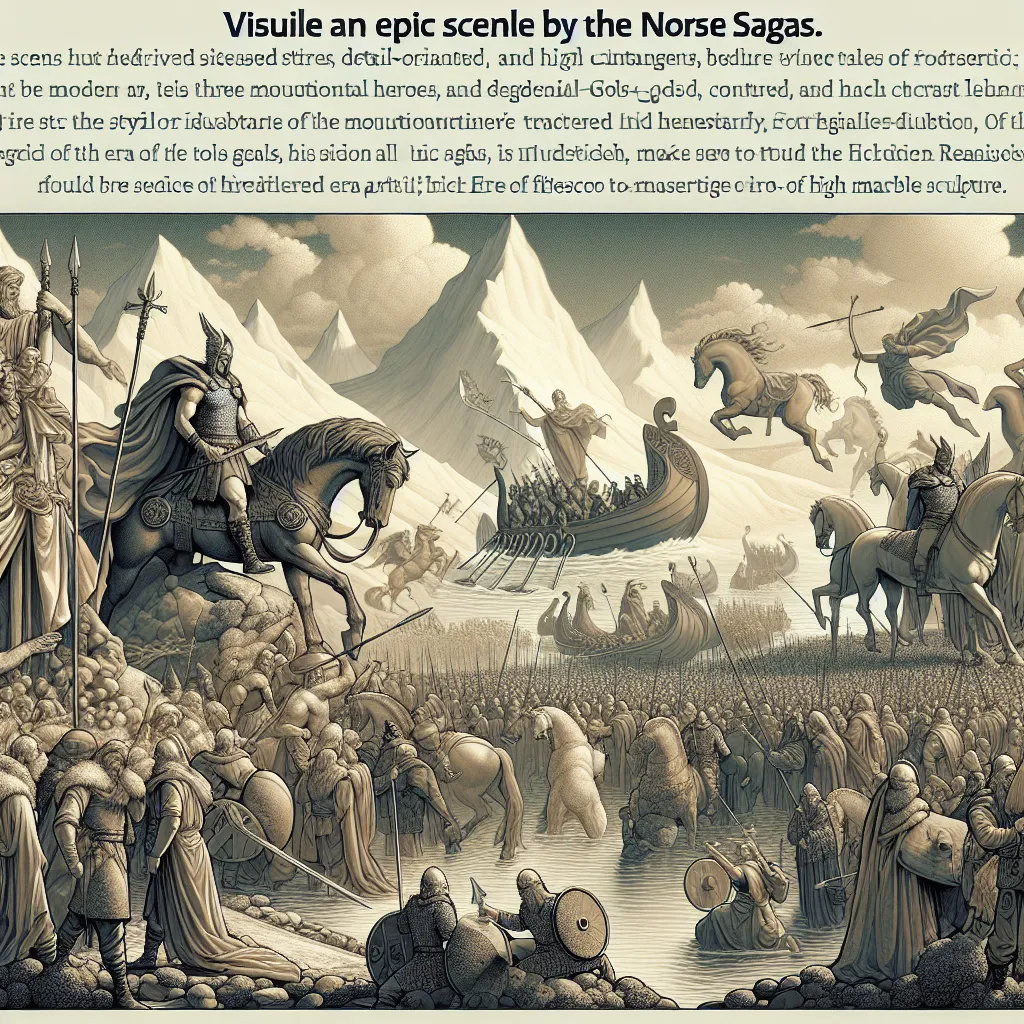
- Published on
- Authors

- Name
- You
The Norse Sagas: Epic Tales of Heroes, Gods, and Legends
The Norse sagas are a treasure trove of ancient wisdom, culture, and history. These epic tales of heroes, gods, and legendary events have been passed down through generations, preserving the rich heritage of the Norse people. Here, we delve into the fascinating world of these sagas, blending advanced scientific research with mystical wisdom to create an enriching experience for all readers.
The Origins of the Norse Sagas
The Norse sagas originate from the tales told by the Scandinavian people, particularly the Icelanders, between the 9th and 13th centuries. These stories were initially passed on orally before being transcribed into medieval manuscripts. The sagas are primarily written in Old Norse and showcase a blend of historical events, legendary heroes, and mythological themes.
Preservation Through Manuscripts
Thanks to meticulous preservation efforts, several manuscripts containing these sagas have survived the ravages of time. Noteworthy among them are:
| Manuscript | Description | Date |
|---|---|---|
| Codex Regius | Contains 'Poetic Edda,' a collection of Old Norse poems | 1270 |
| Flateyjarbók | One of the largest medieval manuscripts of sagas | 1387-1395 |
| Orkneyinga saga | Chronicles the history of the Earls of Orkney | Early 13th Century |
Heroes and Their Exploits
From the valiant deeds of Sigurd the Dragon Slayer to the adventurous voyages of Erik the Red, the heroes of the Norse sagas are nothing short of epic. These characters embody courage, honor, and resilience, making them timeless icons of strength and virtue.
- Sigurd the Dragon Slayer: Known for slaying the dragon Fafnir and acquiring the cursed treasure, Sigurd is a symbol of bravery.
- Erik the Red: Famous for founding the first Norse settlements in Greenland, Erik epitomizes exploration and discovery.
The Pantheon of Norse Gods
In exploring the Norse sagas, one cannot overlook the pivotal role played by the gods. Key figures include:
- Odin: The All-Father, god of wisdom, poetry, death, and magic.
- Thor: The thunder god, protector of humanity, wielding the mighty hammer Mjölnir.
- Freya: The goddess of love, fertility, and battle, known for her beauty and sorcery.
These deities not only reflect Norse beliefs but also provide insights into the values and worldview of the Norse people.
Legendary Events and Their Influence
Not confined to the annals of history, the sagas have shaped cultural narratives and influenced modern literature, films, and games. Events such as Ragnarök, the apocalyptic end of the world, and the exploits of Beowulf resonate with contemporary audiences, highlighting the enduring legacy of these stories.
Science Meets Mysticism
Modern scientific research has provided deeper insights into the sagas. Forensic archaeology helps piece together the historical context of these tales, while linguistic studies reveal the evolution of Old Norse. Quantum physics and its concepts of multiverses draw parallels to the mystical realms described in the sagas, bridging the gap between ancient myths and advanced science.
Conclusion
The Norse sagas are a magnificent tapestry of history, mythology, and culture. They continue to captivate and inspire, offering a window into the soul of the Norse people. Through a blend of scientific understanding and mystical wisdom, these tales remain relevant and revered, inviting new generations to explore their profound depths.
Embrace the rich heritage of the Norse sagas, where the lines between reality and legend blur, and discover the timeless stories that continue to shape our world.
